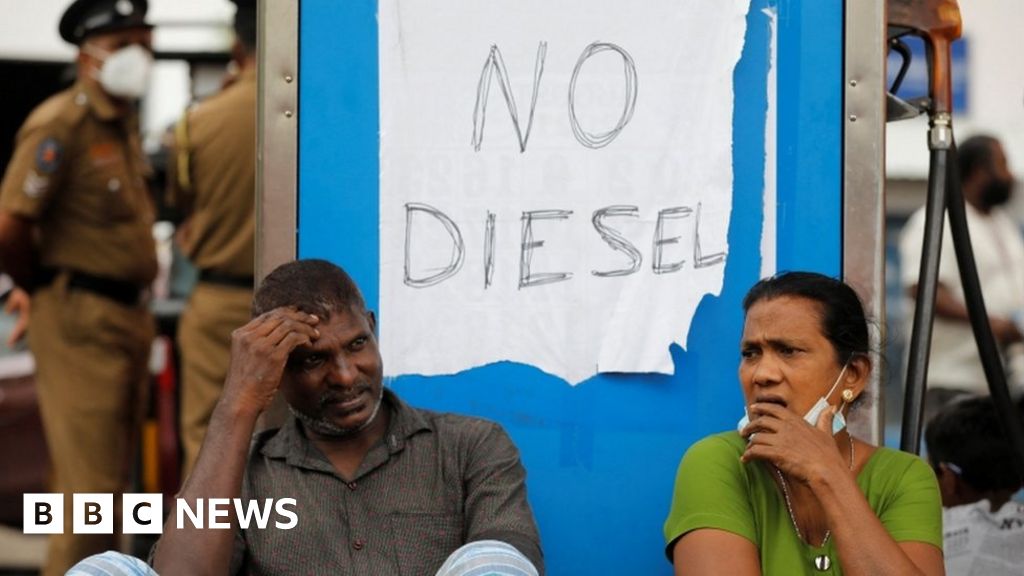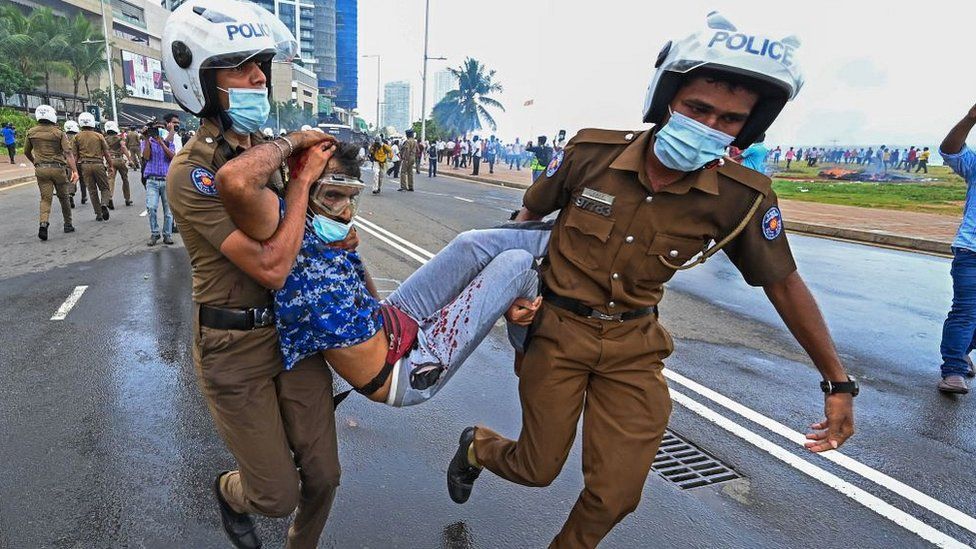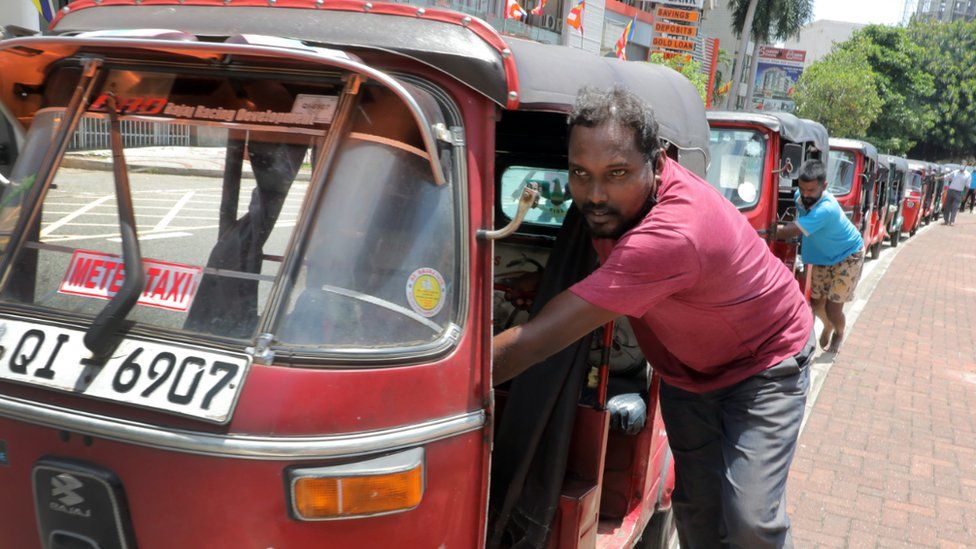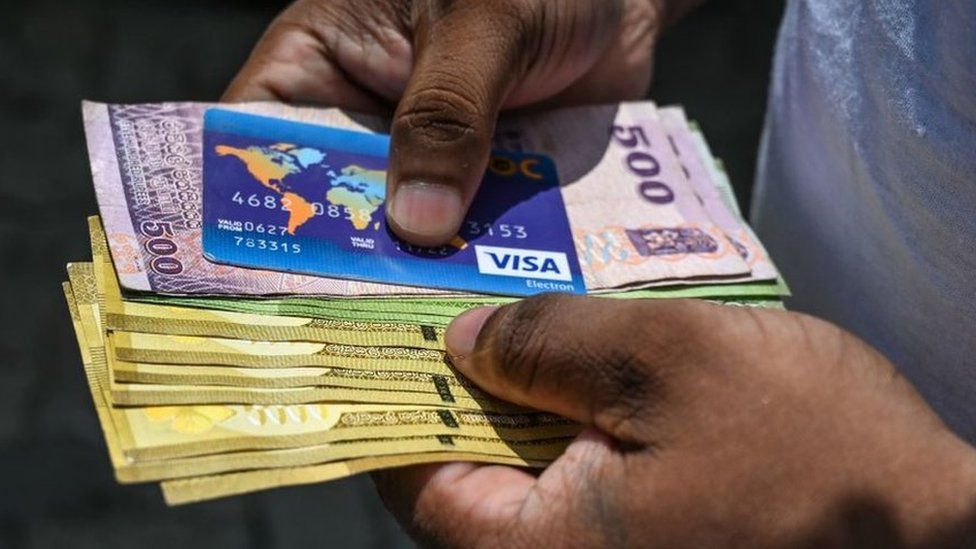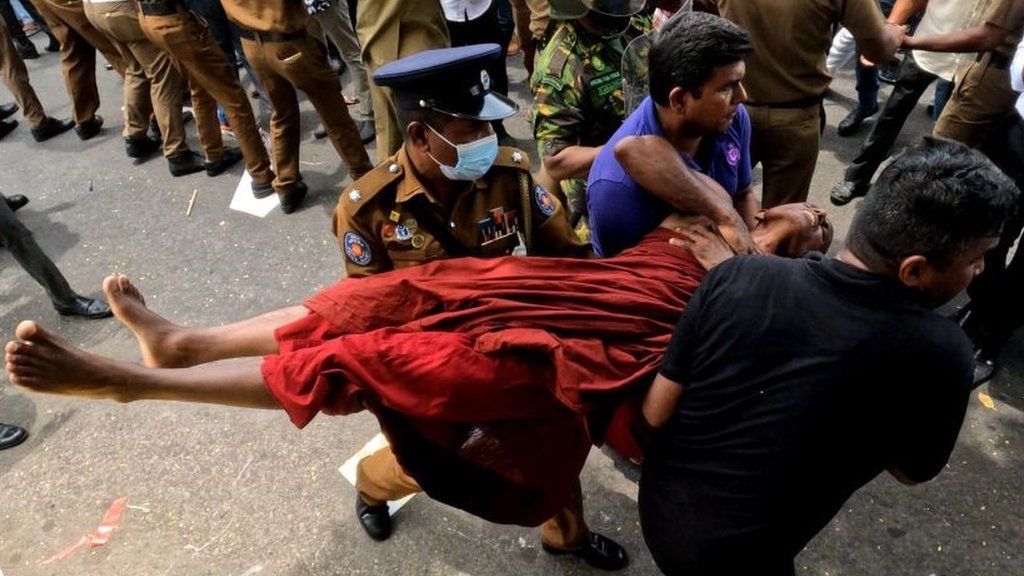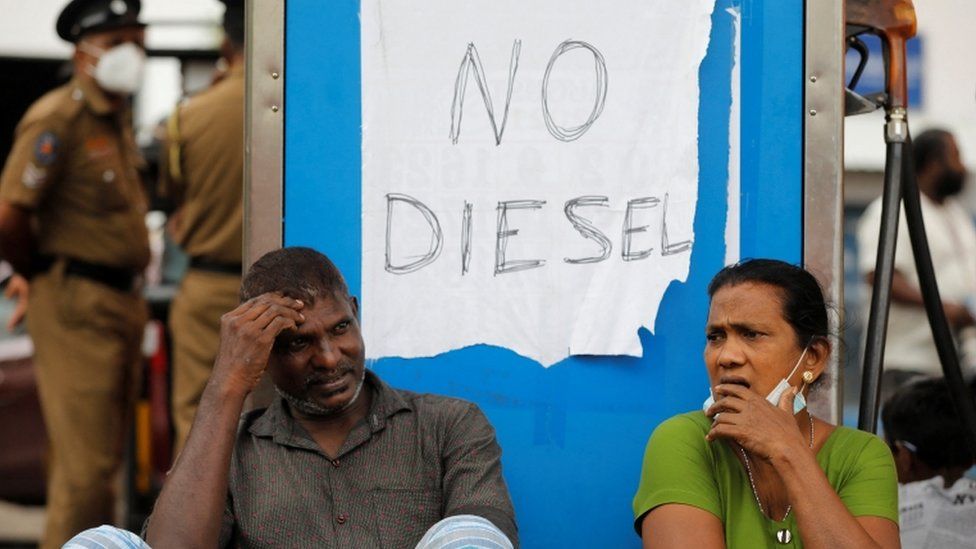
Sri Lanka has defaulted on its debt for the first time in its history as the country struggles with its worst financial crisis in more than 70 years.
It comes after a 30 day grace period to repay $78m (£63m) of unpaid debt interest payments expired on Wednesday.
The governor of Sri Lanka’s central bank said the country was now in a “pre-emptive default”.
Defaults happen when governments are unable to meet some or all of their debt payments to creditors.
It can damage a country’s reputation, making it harder to borrow the money it needs on international markets, which can further harm confidence in its currency and economy.
Asked whether the country was now in default, central bank governor P Nandalal Weerasinghe said: “Our position is very clear, we said that until they come to the restructure, we will not be able to pay. So that’s what you call pre-emptive default.
“There can be technical definitions… from their side they can consider it a default. Our position is very clear, until there is a debt restructure, we cannot repay,” he added.
Sri Lanka’s economy has been hit hard by the pandemic, rising energy prices, and populist tax cuts. A chronic shortage of foreign currency and soaring inflation had led to a severe shortage of medicines, fuel and other essentials.
In recent weeks, there have been large, sometimes violent, protests against President Gotabaya Rajapaksa and his family due to the growing crisis.
The country has already started talks with the International Monetary Fund over a bailout and needs to renegotiate its debt agreements with creditors.
The government has said previously that it needs as much as $4bn this year.
Mr Weerasinghe also warned that Sri Lanka’s already very high rate of inflation was likely to rise further.
“Inflation obviously is around 30%. It will go even [higher], headline inflation will go around 40% in the next couple of months,” he said.
This video can not be played
To play this video you need to enable JavaScript in your browser.
He was speaking after Sri Lanka’s central bank held its two key interest rates steady following a seven percentage points rise at its last meeting.
The country’s main lending rate remained at 14.5%, while the deposit rate was kept at 13.5%
Last month, two of the world’s largest credit rating agencies warned Sri Lanka was about to default on its debts.
Fitch Ratings lowered its assessment of the South Asian nation, saying “a sovereign default process has begun”.
S&P Global Ratings made a similar announcement and said that a default is now a “virtual certainty”.
Credit ratings are intended to help investors understand the level of risk they face when buying a financial instrument, in this case a country’s debt – or sovereign bond.
After being contacted by the BBC on Thursday, major credit ratings agencies Moody’s and Fitch said that they did not have any new updates at this time.
S&P Global Ratings did not immediately respond to a request for comment from the BBC.
Last week, President Rajapaksa’s elder brother Mahinda resigned as prime minister after government supporters clashed with protesters. Nine people died and more than 300 were wounded in the violence.
On Friday, Sri Lanka’s new prime minister Ranil Wickremesinghe told the BBC, that the economic crisis was “going to get worse before it gets better”.
In his first interview since taking office, he also pledged to ensure families would get three meals a day.
Appealing to the world for more financial help, he said “there won’t be a hunger crisis, we will find food”.

Sri Lanka: The basics
- Sri Lanka is an island nation off southern India: It won independence from British rule in 1948. Three ethnic groups – Sinhalese, Tamil and Muslim – make up 99% of the country’s 22m population.
- One family of brothers has dominated for years: Mahinda Rajapaksa became a hero among the majority Sinhalese in 2009 when his government defeated Tamil separatist rebels after years of bitter and bloody civil war. His brother Gotabaya, who was defence secretary at the time, is now president.
- Now an economic crisis has led to fury on the streets: Soaring inflation has meant some foods, medication and fuel are in short supply, there are rolling blackouts and ordinary people have taken to the streets in anger with many blaming the Rajapaksa family and their government for the situation.

